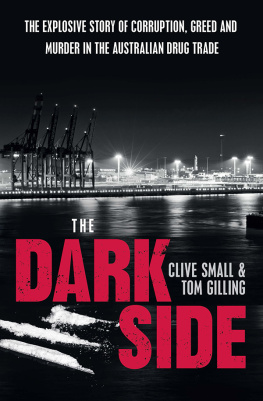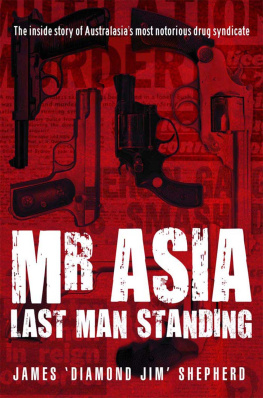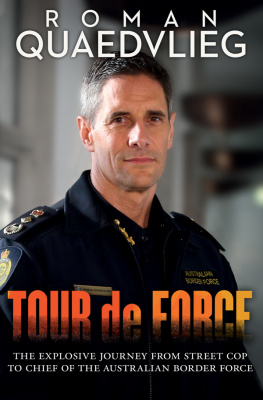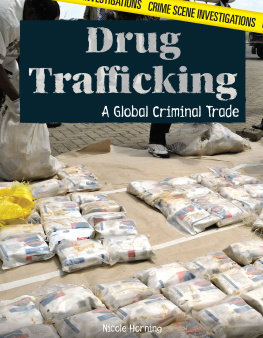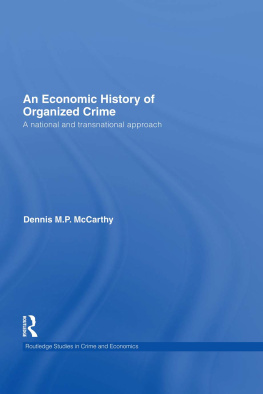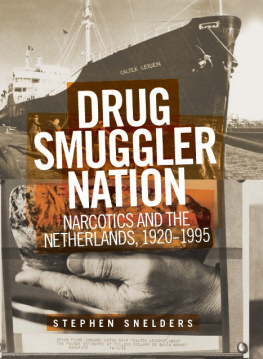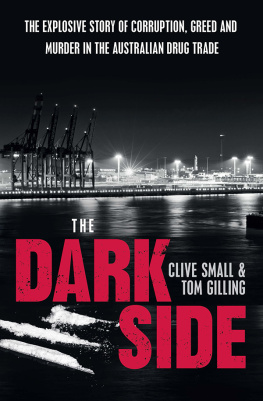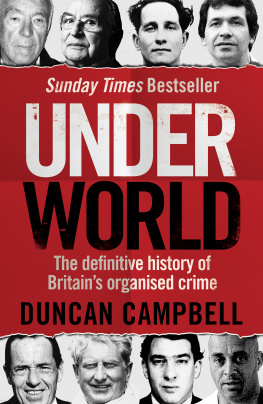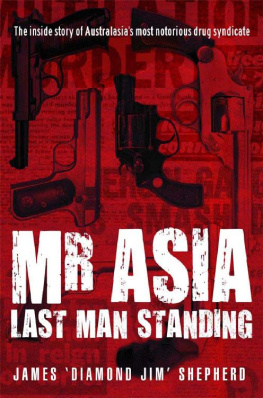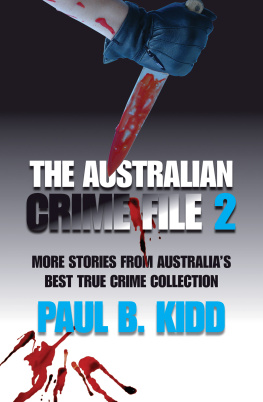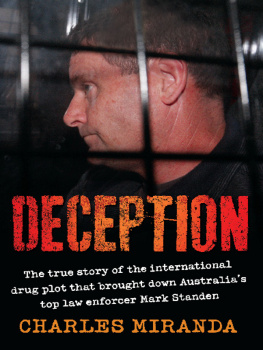In 2008 Clive Small and Tom Gilling published the bestselling book Smack Express: How organised crime got hooked on drugs, which exposed the growth and transformation of organised crime in Australia since the late 1960s. They followed this with Blood Money: Bikies, terrorists and Middle Eastern gangs, Betrayed: The shocking story of two undercover cops, Milat: Inside Australias biggest manhunta detectives story, and in 2016, Evil Life: The true story of the Calabrian Mafia in Australia.
CLIVE SMALL is a 38-year New South Wales police veteran. Much of his time was spent in criminal investigation. He was awarded several commendations. From 197780 he worked as an investigator with the Woodward Royal Commission into Drug Trafficking. During 198788 he was an investigator on Strike Force Omega, which reinvestigated the 1984 shooting of Detective Michael Drury. In the early 1990s Small led the backpacker murder investigation that resulted in the conviction of Ivan Robert Milat for the murder of seven backpackers in the Belanglo State Forest, south of Sydney, between 1989 and 1992. In 2001, as head of the Greater Hume Police Region, he helped dismantle the Vietnamese street gangs that had made Cabramatta Australias heroin capital. After retiring from the police force he joined the New South Wales Independent Commission Against Corruption as the executive director of operations. Since March 2007 he has been writing full-time.
TOM GILLINGs first two novels, the The Sooterkin (1999) and Miles McGinty (2001), were both shortlisted for major awards and chosen as notable books of the year by the New York Times. They have been translated into several languages. His third novel, Dreamland, has been published in Australia, Britain and the United States. As a journalist he has worked for numerous publications including the Sydney Morning Herald, Rolling Stone, the Guardian (UK) and the New York Times. Before Smack Express he co-wrote two non-fiction books, Trial and Error (1991), about the Israeli nuclear whistleblower Mordechai Vanunu, and Bagman: The final confessions of Jack Herbert (2005), about the events that led to the Fitzgerald Inquiry into police corruption in Queensland.
Our sincere thanks to those on both sides of the lawmany of whom must remain namelesswho helped directly or indirectly in the writing of this book. Thanks also to the journalists who over the decades have reported fearlessly on the growth and influence of organised crime.
Special gratitude to ABC TVFour Corners, Bob Bottom, Peter Butt, John Cushion, Michael Kennedy, Lorna Knowles, Michael McGann, Jayson McLeod, Neil Mercer, Charles Miranda, Brian Murphy, Michael Purchas, Lloyd Saxon, Adam Shand, Bob Small, John Sylvester, Ray Tinker, Dylan Welch, Kate McClymont and Marian Wilkinson for their support and advice.
Organised crime is addicted to the illicit drug trade, so its interest in Australia is hardly surprising. According to the World Drug Report 2014, published by the United Nations Office on Drugs and Crime, Australia has the highest proportion of recreational drug users in the world. Australia comes first in the use of ecstasy, third in methamphetamines (particularly ice, also known as crystal meth) and fourth in cocaine. More than 10 per cent of the working-age population regularly uses cannabis. Australia ranks second in addiction to prescribed or black market opioids such as codeine and morphine. Despite having some of the worlds highest prices, Australian drug useespecially of icehas continued to rise. New drugs are regularly introduced. Patterns of use vary significantly with age, gender, location and social class.
The Australian Criminal Intelligence Commissions Illicit Drug Data Report 201415 reveals that the number of drug arrests increased by 19.5 per cent from the year before, while the number of drug seizures increased by 13.7 per cent (from 93,086 to 105,862). Significantly, however, the weight of drugs seized decreased by 13.9 per cent (from 27.3 tonnes to 23.5 tonnes). Detections of clandestine laboratories also fell. Only 667 clandestine laboratories were detected in 201415, the lowest number since 200809.
Operation Gordian, which was led by the Australian Crime Commission with help from state, territory and federal law enforcement agencies, ran for eighteen months from early 2005 and identified the transfer of $300 million in drug money from Australia to Asia, resulting in 73 prosecutions. Gordian also seized drugs with a street value of around $30 million. In 2007 the Australian Crime Commission launched Operation Dayu. During its four-year operation more than $10 million in suspected drug money was authorised to be sent overseas in an attempt to flush out international drug bosses. According to Nick McKenzies book, The Sting: Australias plot to crack a global drug empire, Dayu seized drugs with a street value of nearly $800 million and identified a triad-led international gang, known as the grandfather syndicate, responsible for importing drugs worth more than $1.2 billion into Australia every year. The syndicate is still active today.
More than three decades ago the Costigan Commission revealed the extent of crime and corruption on the nations wharves. Members of the Federated Ship Painters and Dockers Union were implicated in fifteen murders during the 1970s and were involved in corruption, smuggling, standovers and large-scale theft from the wharves. Describing the crimes as endemic, Costigan noted that only a small fraction of the crimes were reported to the police. He went on:
The criminal activities of the members of the union were not restricted to any particular sphere of crime. In my reports, I referred to crimes of violence, theft, extortion, intimidation, fraud, illegal gambling and trafficking in drugs. There was evidence of wide-scale racketeering, loan sharking and active participation in organised prostitution. I doubt whether there were any forms of criminal activity in which there was not some active participation.
Although the union was deregistered in 1993, several prominent members played a significant role in organised crime and corruption, particularly in Victoria, for decades to come.
The Costigan Commission did not put a stop to crime and corruption on Australian wharves. In July 2010 Task Force Polaris was established by the federal government and AFP to investigate organised crime on Sydneys waterfront. It was heralded as the first multi-agency task force to combat organised crime on the wharves in New South Wales.
After two years the task force, comprising officers from the AFP, Customs, the Australian Crime Commission, the NSW Police and the NSW Crime Commission, had made sixteen arrests resulting in 77 charges. It had seized more than 12 tonnes of illicit substances and precursor chemicals, 114.8 tonnes of loose leaf tobacco and 92.7 million individual cigarettes. The task force had investigated more than twenty allegations of corruption involving government officials, including Customs employees and licensed customs brokers. Drug and tobacco traffickers were alleged to have been tipped off before containers were searched and top-secret information was alleged to have been leaked to criminal syndicates. Fifteen Customs officers and officials had been suspended or sacked over allegations of misconduct or corruption, including one officer with close ties to a Middle Eastern crime family in Sydney.
In May 2012 the then federal Home Affairs Minister, Jason Clare, announced a major crackdown on organised crime and a major overhaul of security of the waterfront and the entire supply chain. As part of the crackdown an individual could be banned from working on the wharves if there was compelling evidence that he or she was involved in organised crime. As well as boosting visible and covert patrols of the waterfront by Customs, an increased focus was to be given to figures in the private sector supply chain, such as freight forwarders, customs brokers and cargo handlers. Taskforce Trident was established in Melbourne in July 2012 and the following year Taskforce Jericho was established in Brisbane. A task force similar to Polaris had previously been established in Perth.
Next page
